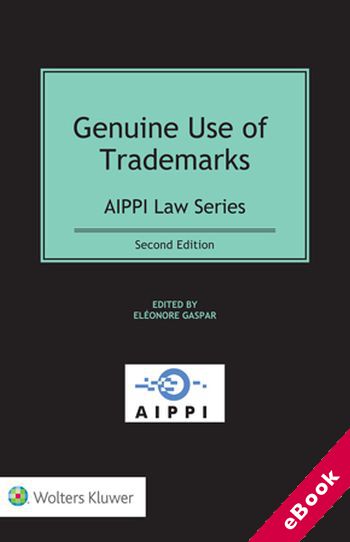
The device(s) you use to access the eBook content must be authorized with an Adobe ID before you download the product otherwise it will fail to register correctly.
For further information see https://www.wildy.com/ebook-formats
Once the order is confirmed an automated e-mail will be sent to you to allow you to download the eBook.
All eBooks are supplied firm sale and cannot be returned. If you believe there is a fault with your eBook then contact us on ebooks@wildy.com and we will help in resolving the issue. This does not affect your statutory rights.
Genuine Use of Trademarks is developed within the framework of the International Association for the Protection of Intellectual Property (AIPPI) that is dedicated to improving and promoting the protection of intellectual property at both national and international levels. Since the first edition of this book in 2018, there have been significant modifications in some countries following the implementation of EU Directive 2015/2436. Laws around the world do not attach the same consequence to the lack of use of a trademark, and courts do not always assess in the same way whether a trademark is genuinely used. Addressing the issue of trademark use that may be required for the protection and/or maintenance of trademark rights, this book provides clarity, insight, and guidance on the legal issues and practical implications of genuine use of trademarks in twenty-six jurisdictions worldwide.
What’s in this book:
The contributors have extensive experience and in-depth knowledge in trademark protection in their respective jurisdictions. Each chapter considers issues and topics along with case law examples, including the following:
How this will help you:
One of its kind, this comparative law study is of tremendous practical interest. Trademark owners, parties involved in or contemplating enforcement proceedings, and interested legal practitioners will benefit greatly from its thorough comparative analysis and guidance. Moreover, as a comprehensive resource, this book will prove to be a valuable resource for academics and researchers interested in international harmonization of trademark law.